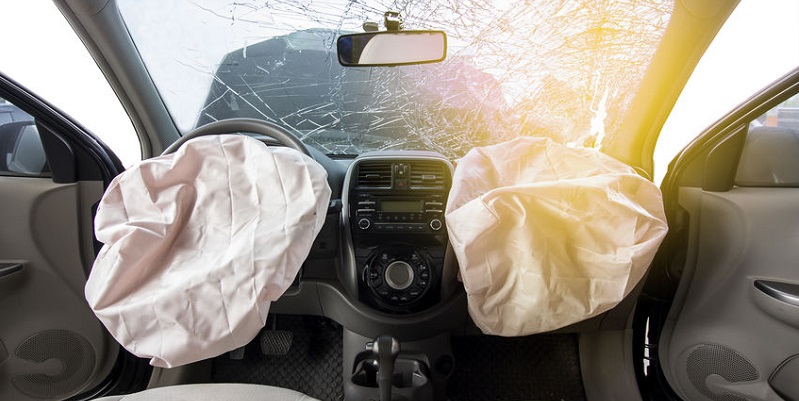Some vehicle owners, including here in Colorado, must replace airbags they already replaced, thanks to a defective component that can cause metal shards to be flung at the driver during an accident.
For Some Vehicle Owners, a Double Nightmare
For more than a decade now, automobile makers have been recalling defective airbags produced by Takata. Millions have been replaced. But now a few vehicle manufacturers are once again sending recall notices after discovering that some of the airbags replacing the defective ones are also defective.
Millions of Vehicles Affected by Airbag Recalls
The first recall of the Takata airbag occurred at the end of 2008, with Honda issuing a notice to some 4,000 car owners. Over a decade later, the recall has spread to more than a dozen car manufacturers around the world and resulted in the recall of 37 million vehicles.
But for too many car owners, that’s not the end of the story.
According to Consumer Reports, Honda has recently recalled over a million of its cars, SUVs, and pickups because of incorrectly manufactured replacement airbags. Honda says that the problem is Takata’s manufacturing facility in Monclova, Mexico, where too much moisture was allowed to enter the airbag inflator during assembly. If too much moisture invades the inflator (the device that makes the airbag inflate), it may become unstable when triggered. The result can be serious injury or even death.
Airbags That Hurl Shrapnel
Normally, when an airbag is touched off during an auto accident, a carefully shaped fuel explodes to instantly inflate the airbag. Normally, this is a well controlled and safe process. But in the defective airbags–both the original airbags and the replacement airbags–the steel tubing of the inflator shatters, and bits of metal may slice through the airbag and into the person the airbag is supposed to protect.
Just last month, Honda reported another death caused by a defective Takata airbag inflator, this time in Arizona. (The death had occurred in June of last year, but the carmaker only recently learned of it.) That makes a total so far of at least 24 killed by Takata’s airbags. Hundreds more have been injured.
The National Highway Traffic Safety Administration (NHTSA) continues to monitor the situation. Tens of millions of vehicles have already been affected by the ongoing recall. The total will reportedly reach 100 million.
Has your vehicle been recalled?
The NHTSA is urging all vehicle owners to determine whether their car, SUV, or truck is being recalled. The recall is based on geographic region, with areas that are hotter and more humid getting the highest priority. The greater humidity in those regions is thought to accelerate the breakdown of the already contaminated inflator fuel, increasing the risk of too-rapid explosion.
Zone A (“Hot & Humid”) consists largely of Gulf Coast states. Colorado is in Zone C (“Least Hot & Humid”), where the situation is regarded as less urgent. Even so, vehicle owners in the state can’t afford to ignore the recall. Many cars popular here are on the recall list, including several Subaru models.
Quickly check whether your vehicle is being recalled by using the NHTSA’s Recall Lookup Tool. You need your Vehicle Identification Number (VIN), the 17-character number located on the lower left of the windshield, on the inside of the driver’s side door, or on the vehicle registration card. The lookup tool will report all recalls listed for your vehicle.

